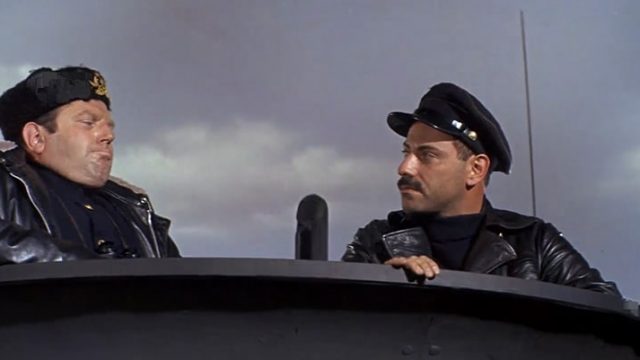There are a handful of people in the history of film and television who you can remember distinctly no matter what your preferred genre is. You like musicals? Have Zoltan Kaparthy from My Fair Lady. Science fiction more your speed? How about Sergey Rozhenko, Worf’s adoptive dad on Star Trek: The Next Generation? He was the murderer on an episode of Columbo once, as who was not. Historical drama? The first officer on the German ship at the end of The African Queen. Family fare? Bando in My Side of the Mountain. Or the place I think of him, the Russian submarine captain in the Cold War satire The Russians Are Coming! The Russians Are Coming!
Theodore Bikel was one of the most wide-ranging actors we’ve covered. Oh, it’s not just being in many different genres, though goodness knows he did that. It’s that he was distinctive in different genres. He did memorable roles in movies from The Defiant Ones to I Bury the Living, the latter making him a member of the Stephen King Danse Macabre club. In TV, he did a lot of the old classic playhouse shows from the ’50s and ’60s. And several episodes of Murder, She Wrote.
In fact, two of my favourite of his roles are major parts of their respective films—Zoltan Kaparthy and the Russian captain—and it wasn’t until he died that I realized it was the same actor, who also played Worf’s dad. I admit none of them are the most prominent part of their respective media, but they’re all memorable parts. In Russians, he doesn’t even have any lines in English. He’s still a delight in the role, someone who helps contribute to the impressive cast of the film.
He also did stage work, which I’m less familiar with. He was the understudy for both Mitch and Stanley in the original Broadway Streetcar Named Desire. He was the original Captain Von Trapp in the Broadway Sound of Music. “Edelweiss” was written for his specific range and ability—he was a folk singer as well as an actor. He was a co-founder of the Newport Folk Festival and helped propel Bob Dylan to the limelight. He opened the first folk music coffee house in Los Angeles—and the second, which helped established Maya Angelou’s career.
When he was in The Sound of Music, he was also campaigning for John F. Kennedy for President. The producers were not sure how it looked and believed it took away from the dignity of the profession. Then he was picked up at the theatre by Eleanor Roosevelt, and they left him alone about it. He was a prominent member of Actors’ Equity. He was arrested for protesting in front of the Soviet Embassy over the plight of Russian Jews. He was both an actor and an activist and was remembered as such.
One of his projects was co-founding the Actors Federal Credit Union; help stretch my own credit union account by contributing to my Patreon or Ko-fi!

